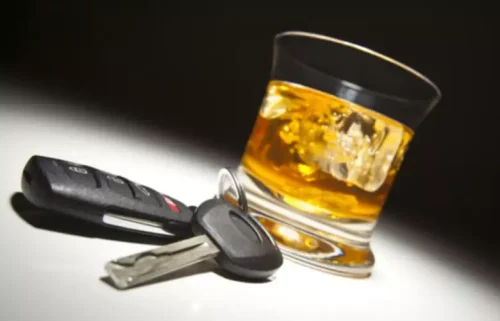
“For a light drinker, you don’t really need to taper,” says Dr. Mosquera. Behavioral treatment programs are helpful for people who want to quit drinking. These programs involve working with a team of mental health professionals in a group and individual setting. The DTs include delusions in which the alcoholic becomes confused or paranoid.

What causes shakiness during a hangover?

DT’s are less common than regular alcohol tremors, occurring in about 5 percent of patients going through withdrawal. DT’S will typically appear around 2-4 days after a person’s last drink. Uncontrolled shaking of the hands or other parts alcohol shakes of the body is common among those suffering from an alcohol addiction. Most of the time, an individual with a drinking problem who shakes is exhibiting signs of alcohol withdrawal, but there are other reasons why an alcoholic might shake.
- Studies show support groups play an instrumental role in helping people develop healthy social networks that result in continued sobriety.
- You don’t need to be diagnosed with alcohol use disorder in order to quit drinking.
- Brittany Burke Robert, the author of this article, has written about health for Oprah Daily, Well+Good, Livestrong, Reebok and other publications and digital brands for over 15 years.
- If you have severe vomiting, seizures or delirium tremens, the safest place for you to be treated is in a hospital.
- Matt supervises all the clinical staff at various levels of care, long-term & short-term residential and IOP (Intensive Outpatient), at multiple facilities.
Are hangover shakes dangerous?
Once you stop using alcohol, it may take several months to regain a normal sleep pattern. Meanwhile, practicing the stress management techniques discussed above can be key to more quickly enjoying healthy sleep. Once you’ve made the decision to get sober, it’s very important to have the right support system around you. Trying to detox from alcohol on your own, or trying to quit “cold turkey,” can be very dangerous. Alcohol withdrawal syndrome can be life-threatening if your blood pressure and heart rate are not managed during the detox process. If you try to stop drinking by going cold turkey, and experience alcohol withdrawal symptoms so severe that you start drinking again, then you do need professional help–now.

Delirium Tremens
Only about 20 percent of alcoholics are able to abstain from alcohol permanently without the help of formal treatment or self-help programs such as Alcoholics Anonymous (AA). Of people who attend AA, 44 percent of those who remain free of alcohol for 1 year probably will remain abstinent for another year. This figure increases to 91% for those who have remained abstinent and have attended AA for 5 years or more.
Alcohol withdrawal shakes can be scary, but reducing your stress and anxiety can help quite a bit. While they normally go away on their own, if your shakes are severe or don’t stop, talk to your doctor right away. Just be cautious when starting a new medication since it’s very easy to get addicted to withdrawal medications, especially when you’re quitting alcohol. To reduce your stress during withdrawal, try doing some light exercise, like going for a walk or riding your bike. You might also try journaling or spending some time with a supportive friend.
The Most Common Mental Health Disorders
Dr Chavez, one of five people charged over Perry’s death, has agreed a plea deal with prosecutors, but did not enter it formally during the hearing. This drink is perfect for social events like work parties or holiday gatherings because everyone will enjoy it. The sweet, fruity base is the perfect canvas for a host of spices like cinnamon, cloves and ginger. Cider can be served hot or over ice for a cool take on the classic drink. She has experience covering all things health, fitness, nutrition, and wellness and adheres to the highest journalistic standards. These effects will subside as your body adjusts to the absence of alcohol.
DT’s are especially common if you do not eat enough during your drinking binge or have a long history of alcoholism. The term alcoholic shakes is used to describe a common symptom of alcohol withdrawal in which the person experiences tremors or shakes. While it’s true that many people who have been addicted to alcohol for years may experience tremors or shakes related to their alcohol use, it’s also possible for someone to experience alcohol shakes at any time. You don’t have to have struggled with alcohol for years or be dealing with a severe addiction to suffer the shakes.
- Typical withdrawal side effects include sweating, anxiety, insomnia, headache, nausea, vomiting, and tremors.
- Alcoholism can also lead to liver disease, which, in its advanced stages, can cause a characteristic flapping or shaking of the hands known as asterixis.
- Alcohol is a depressant, which is a substance that reduces activity in the brain and interferes with its communication pathways.
- If you have alcohol use disorder and want to stop drinking, talk to a healthcare provider.
Deficiencies in B-complex, C, calcium, potassium, magnesium and other nutrients are common with alcohol use disorder. Always consult your healthcare provider to ensure the information displayed on this page applies to your personal circumstances. On average, an alcoholic who doesn’t stop drinking can expect to decrease his or her life expectancy by at least 15 years. The earlier https://ecosoberhouse.com/ you can recognize drinking as a problematic behavior, the better the chances are of stopping an addiction before it starts or getting the help you need to move toward sobriety. Angie maintains involvement with the day to day operations, continually looking for ways to improve and innovate. Dan has been working in the substance abuse treatment industry for over 25 years.
From 24 to 72 Hours
Matt has been working in the substance abuse treatment field for 20 years. Matt is credentialed as CADC-CS (Certified Alcohol & Drug Counselor – Clinical Supervisor) through CCAPP (California Consortium of Addiction Programs and Professionals). He helped create an effective, holistic alcohol & drug treatment curriculum that has been in use at Elevate Addiction Services since 2015. His primary strengths include clinical insight into substance abuse/mental health, hard work ethic, and ability to work well under pressure.

The higher the number, the worse a person’s symptoms are and the more treatments they likely need. Once the alcoholic has reached a level in this gradual withdrawal where they can go most of the day without a drink, then it is time to visit a treatment center. The center can make a final medical assessment and ensure their safety for the remainder of their time there. To manage a successful tapering, the alcoholic may need to rely on friends or family to help monitor the situation. They may limit themselves to a certain number of drinks per hour and will need a dedicated monitor to keep tabs.
